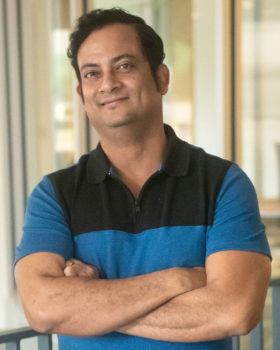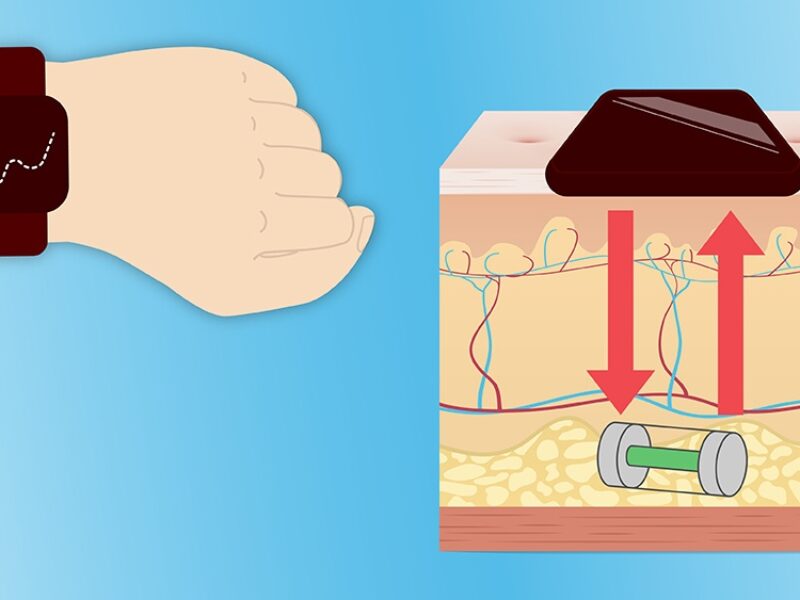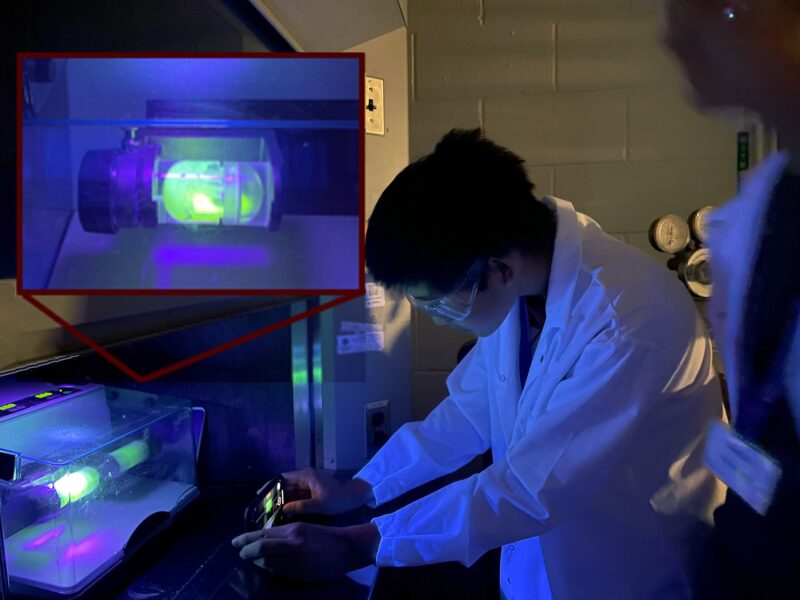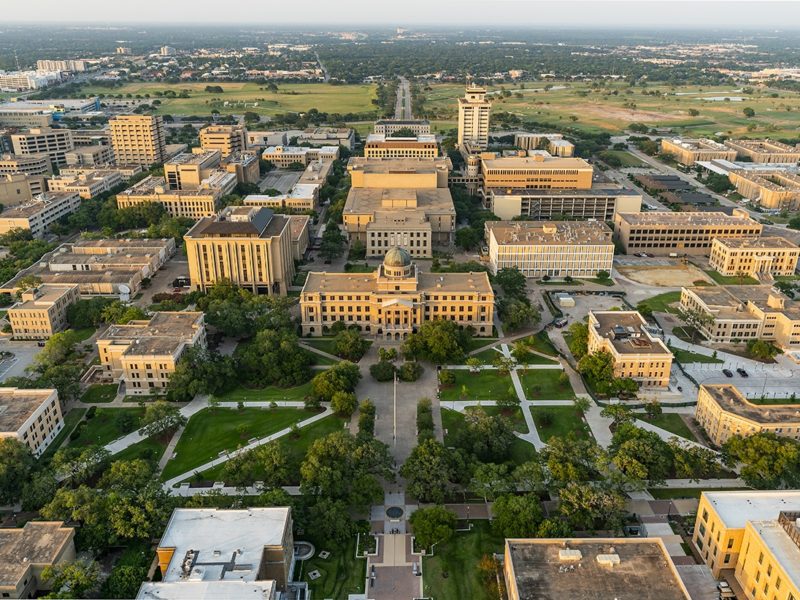NSF Awards $1.5 Million TRIPODS Institute To Texas A&M To Bolster Data-Driven Discovery
A cross-disciplinary team of Texas A&M University researchers led by statistician Bani K. Mallick has been awarded a three-year, $1.5 million Transdisciplinary Research In Principles of Data Science (TRIPODS) grant from the National Science Foundation to establish a new institute, the Texas A&M Research Institute for Foundations of Interdisciplinary Data Science (FIDS).
Texas A&M’s new TRIPODS institute, funded last week through the Division of Computing and Communications Foundations (CCF) from October 2019 through September 2022, brings together nearly three dozen researchers from six disciplinary areas: statistics, mathematics, electrical engineering, computer science, industrial engineering and information and operations management. The institute will conduct research on the foundations of data science motivated by problems arising in bioinformatics, the energy arena and both power and transportation systems.
Mallick, distinguished professor and holder of the Susan M. Arseven ’75 Chair in Data Science and Computational Statistics in the Department of Statistics, serves as principal investigator for the project. He is joined by co-principal investigators Dilma Da Silva, professor and holder of the Ford Motor Company Design Professorship II in the Department of Computer Science and Engineering; Ronald DeVore, distinguished professor and holder of the Dr. Walter E. Koss Professorship in Mathematics in the Department of Mathematics; Nicholas Duffield, TEES Research Professor in the Department of Electrical and Computer Engineering and director of the Texas A&M Institute of Data Science; and Panganamala Kumar, distinguished professor and holder of the College of Engineering Chair in Computer Engineering in the Department of Electrical and Computer Engineering.
Much like its five principal investigators, the institute’s larger team features an impressive array of skill sets and scholarly knowledge representing six different departments within Texas A&M’s College of Engineering, College of Science and Mays Business School:
- Computer Science and Engineering: Xia Ben Hu
- Electrical and Computer Engineering: Dileep Kalathil, Krishna Narayana, Le Xie, Xiaoning Qian
- Industrial and Systems Engineering: Yu Ding, Shahin Shahrampour, Rui Tuo
- Information and Operations Management: Ravi Sen
- Mathematics: Yalchin Efendiev, Simon Foucart, Boris Hanin, Guergana Petrova
- Statistics: Anirban Bhattacharya, Raymond Carroll, Irina Gayananova, Jianhua Huang, Mikyoung Jun, Matthias Katzfuss, Debdeep Pati, Huiyan Sang, Raymond Wong
Given the broad expertise, experience and expectations of both the institute’s leadership and overall team, Mallick says it will be well-positioned to develop rigorous theories, novel methodologies and efficient computational techniques to solve data challenges in many application domains.
“Data science is rapidly evolving as an essential interdisciplinary field where advances often result from a combination of ideas from several disciplines,” Mallick added. “New types of data have emerged and present tremendous complexities and challenges that require a novel way of interdisciplinary thinking.”
TRIPODS awards seek to enable data-driven discovery through major investments in state-of-the-art mathematical and statistical tools, better data mining and machine learning approaches, enhanced visualization capabilities and more. These awards build upon the NSF’s long history of investments in foundational research, contributing key advances to the emerging data science discipline, and supporting researchers to develop innovative educational pathways to train the next generation of data scientists.
“The TRIPODS award signals an important step forward for the advancement of data sciences on the Texas A&M University campus,” said Dr. Valen E. Johnson, distinguished professor of statistics and dean of the College of Science. “It will provide a mechanism for researchers from several fields, including computer science, mathematics and statistics, to advance the theory of data science and extend it to a host of important real-world applications.”
The NSF initially funded 12 TRIPODS projects in 2017 as the agency’s first major investment toward Harnessing the Data Revolution (HDR), one of its 10 Big Ideas — 10 bold, long-term research and process ideas that identify areas for future investment at the frontiers of science and engineering. The HDR Big Idea seeks to establish theoretical, technical and ethical frameworks that will be applied to tackle data-intensive problems in science and engineering, contributing to data-driven decision-making that impacts society and the development of a 21st-century data-capable workforce. In 2019, the NSF has earmarked $30 million toward the support of each Big Idea in an ongoing quest to identify and support emerging opportunities for U.S. leadership with the broad potential to serve the nation’s future.
“Data science is critically important to the university’s research vision, as it impacts positively almost every application domain, from healthcare, transportation and energy, to the social sciences and beyond,” said Dr. Costas N. Georghiades, Delbert A. Whitaker Chair Professor in the College of Engineering and Texas A&M Senior Associate Vice President for Research. “Texas A&M has strength in all these areas. This NSF TRIPODS award will allow our faculty to further extend the foundations of data science and create new analytical tools that will further impact research in all these application domains, as well as help us educate the data scientist of the future.”
Because modern large datasets are extremely complex, Mallick notes that finding answers to seemingly simple questions often turns into an intractable problem. To address these challenges, the Texas A&M Institute for FIDS will transform the foundations of data science through research on modeling complex data and by developing related theory and algorithms. Development of efficient methods to identify low-dimensional structures in these high-dimensional complex data will be the key strategy to recovering high-dimensional signals with related uncertainties. Novel data-analysis models and algorithms also will be developed for representation learning, information extraction and knowledge discovery from complex data to enable better decision making.
To complement the research effort, the institute plans to educate and train students and postdoctoral fellows in areas at the interface of engineering, mathematics and statistics. Targeted outreach programs also will be developed to increase the pool of women and underrepresented minorities who pursue data-science careers. In addition, an external engagement program will be designed to facilitate collaborations with domain scientists and external data scientists.
The two-phase HDR TRIPODS program initially supports the development of small collaborative Institutes that will bring together the four disciplines of electrical engineering, mathematics, statistics and theoretical computer science. After two years, a select number of these institutes potentially will be expanded in collaboration with external partners via a second competitive proposal process, based on their demonstrated capacity and ability to scale their activities for full institute operations.
“These programs will help to develop the intellectual foundation for a new generation of scientists poised to make novel breakthroughs in this exciting new field,” Mallick said. “Texas A&M University and its faculty and students look forward to integrating data, engineering and science to change the world.”
Learn more about TRIPODS, Harnessing the Data Revolution or NSF’s 10 Big Ideas.
This article by Shana K. Hutchins originally appeared on the College of Science website.






